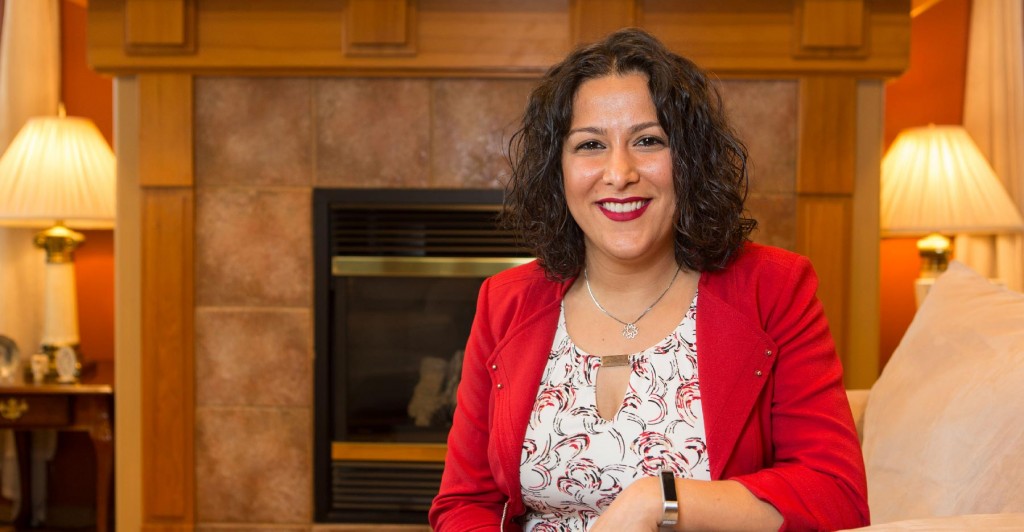Page 259 • (2,628 results in 0.078 seconds)
-

really important to me,” says Johnson. “If who I am is not good for someone, talk to the next person down the line.” Stefanie Ellis Telling a story comes naturally for Ellis, because it’s what she has done her whole career. Prior to her work with Girl Scouts, she served as publications editor for Saint Louis University School of Law, was senior copywriter at an ad agency and was a longtime contributor to the St. Louis Post-Dispatch and St. Louis magazine. She provides freelance writing, editing and
-
research will measure students’ sense of belonging and the impact of program resources over time. Not only will this funding allow us to provide significant scholarship support for low-income students in STEM, but it will also allow us to better integrate PLU resources and build new structures to support these students’ success.- Ann Auman Curricular engagement will include a transitions course, linked introductory courses and supplemental instruction. Students will learn resume writing, scientific
-
PHOTOGRAPHER John Froschauer VIDEOGRAPHER Rustin Dwyer CONTRIBUTORS Claudia Berguson Tim Sherry ’67 Joshua Wiersma ’18 COURTESY PHOTOS Greater Tacoma Peace Prize Jonathan Nesvig ’67 EXECUTIVE CREATIVE DIRECTOR Simon Sung ASSOCIATE VICE PRESIDENT OF MARKETING AND COMMUNICATIONS Lace M. Smith WEB TEAM Logan Seelye Sam O’Hara ’16 Chris Albert CLASS NOTES Kathy Allen ’17 PROOFREADER Rebecca Young EDITORIAL OFFICES Neeb Center 253-535-8410 resolute@plu.edu www.plu.edu/resolute PLU OFFICERS Allan Belton Acting
-
Mayer Kurt Mayer Summer Research Fellows: Jessica Alley, Abigail Kunkel, Christian Riddall, Alicia Sprague Moderator: Lisa Marcus, Professor of English, PLU 1:45 p.m. - 3:30 p.m. – (Chris Knutzen Hall, AUC 214)“Routine Pharmacological Procedures Against Women in Auschwitz: An Unspoken Narrative” – Peggy Kleinplatz The history of routine pharmacological interventions affecting women’s fertility during the Shoah and thereafter has been hidden in plain sight. It is past time to assemble the fragments
-
concept that at the time was unheard of. “What we take for granted as public education, which is supported through taxes, is a Luther invention,” he said. But Torvend argues perhaps the most important Lutheran innovation in education was allowing every subject to exist independently. “That meant that professors in religion could not tell professors in geology or biology how to go about the study of their discipline; it meant that professors in psychology could not tell professors in English how to go
-

, teaching life skills and empowering young people. She also taught English classes privately out of her home. “I had a strong desire to serve my country and people,” she said. “Through our educational work, I learned that I needed to know more about family dynamics in order to be more effective serving this population. … I came to a conclusion that marriage and family therapy could provide me with skills and expertise needed.” After two years of research, Sabet-Kazilas applied to roughly 20 programs in
-
could not tell professors in English how to go about their discipline,” Torvend said. “There is to be freedom to follow the methods of every discipline in their own way.” That means scholars, including those at PLU, are allowed to pursue ideas that challenge or upset both peers and superiors. It promotes the free exchange of ideas, free from censorship. It means no idea is above scrutiny — or beneath consideration. That philosophy resonates with PLU’s continued mission of thoughtful inquiry, asking
-
Vegas, and came to PLU thinking she would major in Chinese studies. But a summer workshop at the University of Maryland, prior to the start of her first year at PLU, pointed her in a different direction. “I wanted to do something creative,” she said. Her creativity blossomed at PLU, where she graduated this year with a degree in theatre. Although her degree carries a concentration in acting and directing, Watts continues to write because she sees a need for more diverse characters in the
-

experiencing physically and hopefully empowering them to take care of themselves from that moment forward. How did studying Nursing at PLU help prepare you do go to work at Tacoma General right after graduating? PLU provided me with an abundance of clinical, hands-on experience that helped make the transition from school to work life less daunting. The nursing program really hones critical thinking skills and prepared me to take a more creative approach to problem solving. How did you choose Nursing as a
-
Fleurimont CONTRIBUTORS Andriana Fletcher ’10 Allison Rise ’12 Sonja Ruud ’12 Jacob Taylor-Mosquera ’09 COURTESY PHOTOS Wang Center Charles Bergman Theodore Charles ’12 Dom Calata ’08 EXECUTIVE CREATIVE DIRECTOR Simon Sung EXECUTIVE DIRECTOR OF CONTENT DEVELOPMENT Lace M. Smith WEB TEAM Logan Seelye Sam O’Hara Asuka Goya Chris Albert CLASS NOTES Laura Rose ’03, ’11 PROOFREADER Rebecca Young EDITORIAL OFFICES Neeb Center 253-535-8410 resolute@plu.edu www.plu.edu/resolute PLU OFFICERS Thomas W. Krise, Ph.D
Do you have any feedback for us? If so, feel free to use our Feedback Form.


